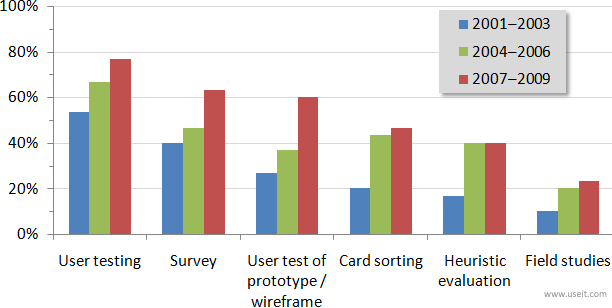With the emergence of tools like Loop11, conducting usability benchmark tests is now more common than ever. Benchmark studies are a great way to see how design or content changes affect website usability. Since benchmark tests are all about tracking usability over time, it’s important to be consistent with the process. With this in mind, Jeff Sauro at measuringusability.com has shared his “10 Tips For Benchmark Usability Test”. Here’s a quick rundown:
- Recruit for representativeness over randomness
- Triangulate using multiple metrics
- Estimate Sample Size using the desired margin of error
- Counterbalance tasks
- Collect both Post-Test and Post-Task Satisfaction
- Combine measures into a Single Usability Metric for reporting
- Use confidence intervals around all your metrics
- Conduct a pilot test
- Include some cheater/speeder detection for remote usability tests
- When you record task time don’t throw away the failed task-times
To view the full and detailed list, click here to read “10 Tips For Benchmark Usability Test” on the measuringusability.com blog.
Happy Testing
![]() Give feedback about this article
Give feedback about this article
Were sorry to hear about that, give us a chance to improve.
Was this article useful?
YesNo








